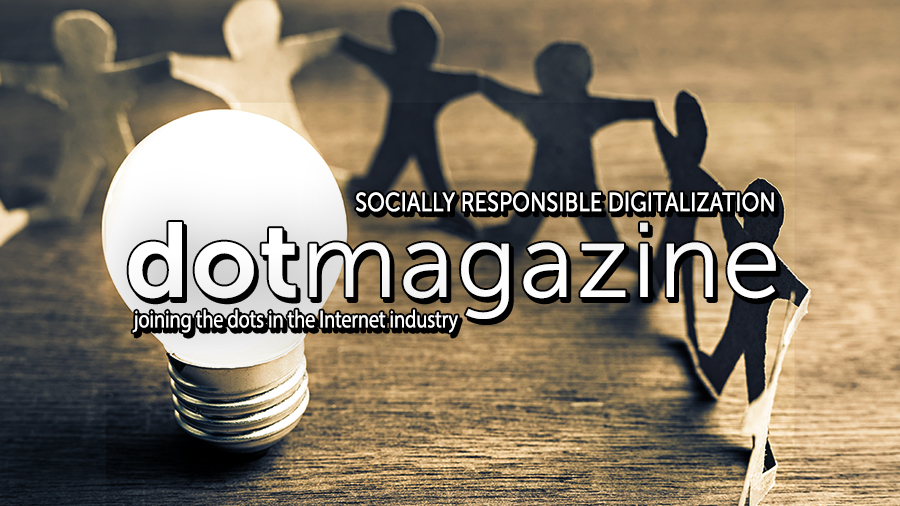Connecting Research with the Market to Develop AI in Europe
Oliver Süme, Chair of the Board at the eco Association, calls for an innovation-friendly environment, investment, and increased knowledge transfer between research and industry to promote AI in Europe.

© metamorworks | istockphoto.com
Watch the 6-minute video here or on YouTube, or read the transcript below.
Transcript
dotmagazine: Oliver, what do you consider important for creating an innovation-friendly environment?
Oliver Süme: I think we need a much more positive debate. In particular, the Germans are very skeptical about technology, about technical inventions, and also, in terms of AI, we have a lot of controversial discussion focusing very much on the risks and on where AI can mean burden for employment, for example. And I think we need a much more positive debate on this. We need much more motivation and much more innovation-friendly environments. That’s really what we are missing. And that’s the general condition for developing AI as a successful technology in Germany and in Europe.
dot: Following on from that: what needs to be done at the European level to create this innovation-friendly environment?
Süme: Well, the European level, first and foremost, I think, needs a regulated and harmonized approach. It doesn’t make sense if Germany moves forward, for example, with its own island legal framework, while France and Italy are doing other things. So we are very much looking forward to what the European Commission will suggest here. And the new Commission has announced that they will publish a draft legislation for AI within the first 100 days of the new leadership. So we’re very excited to see that. And we do hope that it is not too much regulation, because I’m convinced that the power of AI is very much in different sectors, and it’s not so much a general thing. So if you think about regulation, a one-size-fits-all approach won’t help here. We have to look into certain markets, for example, into supply chain and logistics, which has other requirements than the life science sector, if you use AI in that regard. So yes, we need a harmonized approach, whatever we do, and we hope it will be careful and smart regulation.
dot: How important do you consider AI to be for Europe as a technology location?
Süme: I would really say it’s one of the key technologies that we need to improve now, in order to compete with other markets. If you look at China, if you look at Asia as a whole – but also if you look to the US markets – they started much earlier to implement such technologies. They started much earlier to fund and sponsor and invest in such technologies on a very, very high level. And that is something where Europe has to catch up. So actually, there’s no choice. We need to be successful here. Otherwise, we will not be able to compete with other important markets on a global level in the future.
dot: So I do hear that European research is up with the best when it comes to AI, when it comes to innovative technologies. But how can we make the jump from the high-level research through to marketable solutions that give us that edge?
Süme: That is actually one of the biggest challenges. And I agree. We are – not only in Europe, but in particular in Germany – very strong in terms of research and development for artificial intelligence. The goal is to transfer this knowledge and the development of technologies on a scientific level into the economy and in particular into the small and medium sized companies, because they will be the ones that will not invent AI technologies themselves. They have to rely on what the market provides for them in terms of software solutions, in terms of whatever technology solutions might be out there in some years. So that means that we have to connect the scientific part, the research and development part, very closely and directly to the market, and in particular, as I said, to the small and medium sized companies. They are the backbone not only of the German, but of the European economy as a whole. And that’s what I think is really one of the most important things.
dot: Moving on from that, how essential are concepts like data privacy and data sovereignty for the development of a healthy European AI industry?
Süme: Privacy is an issue, of course. However – and that’s also what the results of our study have shown – most existing use cases are not processing personal data; they are processing information from production processes, along value chains or supply chains, data and information that we see in logistics, that we see whatever you take, but not necessarily personal information. That’s where really the music plays currently. Which means, yes, you have to have a discussion about privacy and data protection. But everyone should also be aware of the fact that this is not where the focus of AI currently is really strong. So it will be an issue, but it’s not a main topic. And as everyone knows, we have a framework for that. We have the still pretty new General Data Protection Regulation - and a lot of processes that you could also do with artificial intelligence are subject to this regulation, of course. The GDPR provides a number of legal tools that could also be applied to AI applications.
Oliver Süme is a certified IT lawyer and partner at the European law firm Fieldfisher in Hamburg, Germany. He is an IT and technology law specialist with two decades of experience in the field. Oliver advises national and international clients from various sectors on their path to digitalization. Data protection, IT security, and IT contracts are among his key areas, as are the legal impact of new technologies such as blockchain, Internet of Things, and Industry 4.0. He has a particular focus on advising international Life Science companies on data protection and GDPR compliance.
Oliver held the presidency of the European ISP association EuroISPA for five years until 2018, and in 2017 took over the role of Chair of the Board at eco – Association of the Internet Industry.






